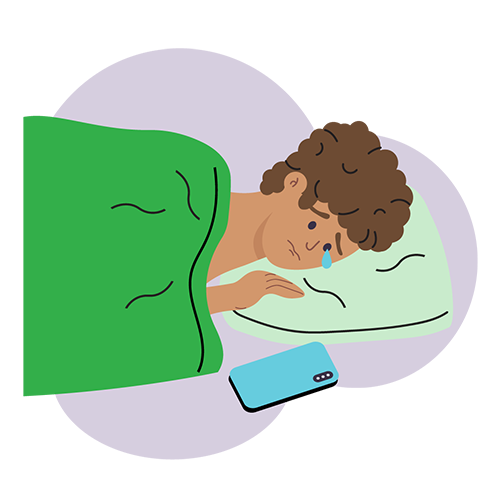Since May is Mental Health Awareness Month, we are focusing on the connection between mental health and oral health, specifically for children and adolescents.
While mental health issues have been increasing for some time, rates for anxiety and depression in youth doubled during the COVID-19 pandemic, according to recent data. Anxiety and depression now affect more than 20% of youth. Given this alarming trend, it is important to understand how your oral health and mental health are related.

How do these changes affect oral health?
Diet—
Youth may crave sugary foods (cookies, candy, etc.,) related to their mood, emotions or social pressures. While depression can cause a decrease in appetite for some people, it can also cause an increase in appetite leading to weight gain.
Uncontrolled stress can trigger emotional eating, which usually consists of comfort foods that are not always healthy choices, and can result in bingeing or overeating. Eating a less balanced diet and increasing the amount of sugary or starchy foods can lead to tooth decay.
Mental health conditions that result in eating disorders such as annorexia, which includes symptoms such as self-induced vomiting, can result in damage to tooth enamel due to acidity.
Routine—
Depression and anxiety can affect sleep quality, sleep amount, daily hygiene habits and attention to appearance. Stress can contribute to teeth grinding (also known as bruxism) which can cause damage to teeth including broken teeth. Neglecting oral health habits like brushing teeth and flossing increases the risk of cavities.

Use of drugs, tobacco, cigarettes or vaping—
Use of illicit drugs can result in burns or sores on the lips and in the mouth. Certain drug use, methamphetamine in particular, can also cause cravings for sugary beverages, leading to rampant cavities and tooth loss. Drug use can also lead to receding gums, gingivitis, tooth grinding and tooth decay. Long-term marijuana use has been associated with dry mouth, cavities from excess unhealthy snacking and gum disease. Tobacco use is known to cause periodontal disease and is an identified risk factor for oral cancer, according to Johns Hopkins Medicine.

Bullying and low self-esteem —
Many young children report being bullied. Teeth are the most commonly targeted trait by school-age bullies, according to a 2013 study. As people age, 1 in 4 adults report that they avoid smiling because of their teeth and 23% report feeling embarrassment about the condition of their teeth and mouth, per information provided by the American Dental Association.
As we can see, mental health has a direct impact on oral and overall health. If you notice a child or young adult who is struggling, find resources from the American Academy of Pediatrics here. You can also speak with your physician, mental health professional or call the Suicide & Crisis Lifeline by dialing 988. This is available 24 hours per day, 7-days a week and in multiple languages.
This information in this post is for general educational purposes only and does not warrant or represent any information as related to health as specifically appropriate for you. It is not intended to be medical advice or replace the relationship that you have with your health care providers. You should always seek medical advice on any diagnosis or treatment from a qualified health care provider. The information is provided “as is” without any representations or warranties, express or implied.







